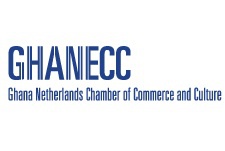“Does the Ghanaian education system provide us with the workforce we need?”
The Ghanecc organized CEO Breakfast was held at the new conference center of the Labadi Beach Hotel in Accra.
The initiative for this quarterly discussion group arose as we; with our Ghanaian and Dutch members consist of both Ghanaian and Dutch companies; are in between cultures, promoting business between Ghana and the Netherlands, which we have done for almost 11 years now.
We regularly meet, for example at our monthly cocktails, we habitually discuss business in Ghana and the country’s needed developments in order for industries to continue to grow and evolve further.
In this context the idea arose to create quarterly discussion groups with the country’s top CEOs who will advise and inform about existing challenges within the Ghanaian economy and in business.
Our aim is to encourage the dialogue, with the ultimate goal of tackling the problems and see what we and our members can do, and what steps need to be taken, to improve Ghana’s business environment.
The first breakfast meeting, held on Wednesday, May 21st, 2014, the following question was discussed:
“Does the Ghanaian education system provide us with the workforce we need?”
The question was discussed among Ghana’s prominent CEOs during a breakfast meeting at Labadi Beach Hotel, Accra. Mr. Kafui Dey was the moderator, and the expert invited to lead the discussion was the Educationist, Author, and Daily Graphic Columnist, Mr. Anis Haffar of GATE Institute, Accra.
What came out of the discussions was what we see as a contrast between higher and lower educated people within Ghana’s workforce, each group with their own restraints.
• Within the lower educated group, there is often little interest and lack of motivation among workers because they are not aware of their own importance in the production chain. This results in a lack of pride of their job and a lack of awareness of company goals, costs and targets.
• In Ghana, the general view is that when one cannot go to a university, they are considered failures. However - as in every society - bakers, construction workers, hair dressers, shop assistants, etc. are valued just as much as lawyers, doctors, and others from such professions.
• Low level jobs, therefore, should get the praise they deserve from society, and this could be achieved, for example, by yearly rewards through competitions such as “Baker of the Year”, “Hair Dresser of the Year”, “Best Carpenter”, Best Welder”, etc.” In this way, those types of jobs will receive the attention, appreciation, recognition, and a more prominent status in Ghanaian society.
• Also, the creation of “Guilds” with a separation between a street or self-trained person – on one hand, and an educated and well trained specialist – on the other hand, could upgrade the status of the technical trained person, thus resulting in a desire to belong to a qualified group.
• Within the higher educated group, the main concern is that their university education does not prepare them sufficiently for the labor market. In Ghana, when you memorize your books word for word, you will pass your exams, but it does not mean that you know what to do on the job when you have to make decisions of your own, show own initiative, or know how to behave or adapt in certain work-related situations. In other words, Ghanaian higher education does not focus enough on the soft skills – such as creativity, innovation, perseverance, and problem solving aptitudes - associated with practical capabilities.
• The Ghanaian education system can help to solve these issues by training people for jobs also, rather than just for diplomas. In this context, appropriate internships - as part of the education program - could be a major step in the right direction. In addition, it will be useful for both education groups to have entrepreneurs and managers (or instructors of practice) that train students and educate them on company practicalities, such as the importance of providing good service, timeliness, meeting targets, and the value of every single role within a company, whether it is at a low- level or a high-level end.
The Ultimate Target
To become a preferred permanent spokes channel and advisory committee to Government on Government policy, regulations and decisions affecting business in Ghana.
After the discussion group meeting, a statement was formulated and on Monday, June 2nd, GHANECC’s Managing Director Nico van Staalduinen was invited by the President of Ghana to present and discuss our statement on Ghanaian education.
The breakfast meeting was a success, and we look forward to our Next CEO Breakfast meeting in September.
Business News of Monday, 4 August 2014
Source: GHANECC
GHANECC: Think Business Ghana













